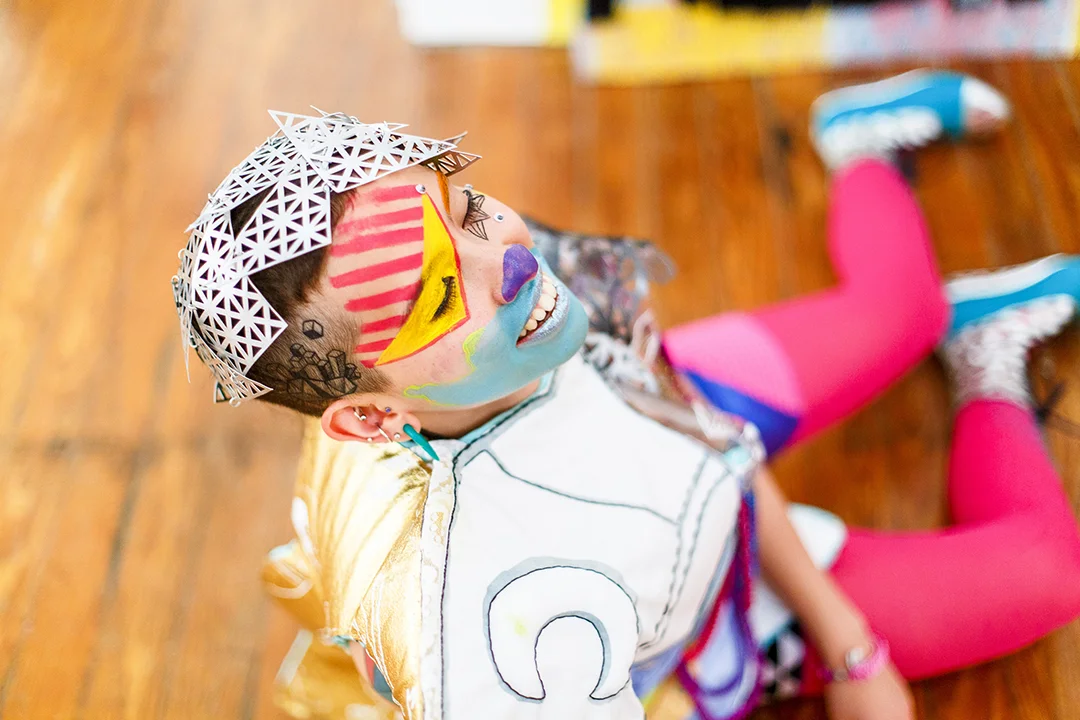You may be unfamiliar with some of the words used on our website either because you have never heard of them before or they are unique to Rebirth Garments! Below is an explanation of some of the terms we use.
Queer: a politicized umbrella term for people LGBTIQQAA+ (Lesbian, Gay, Bisexual, Trans, Intersex, Queer, Questioning, Asexual, Agender+) spectrum people.
Crip: Short for cripple and reclaimed by physically disabled folx. A politicized umbrella term for people with physical disabilities/disorders. Much like you can “come out” as queer, you can also “come out” as crip. Even if you have an obvious/visible disability, you may not identify as crip, just like gay or lesbian people may not identify as queer.
QueerCrip: A politicized umbrella term that encompasses queer, gender nonconforming identities, apparent and non apparent disabilities/disorders—physical, psychological, intellectual, developmental, emotional, etc.
Mad: a quote from MOHAMMED RASHED’s article “Mad Pride and the end of Mental Illness” states: “Mad Pride activism goes beyond these challenges and rejects the very notion of mental illness, a notion that implies a disorder or a dysfunction of the mind. In place of it, activists reclaim the term “mad,” deprive it of its negative connotations, and present the diverse phenomena of madness as sources of identity and culture. The concept of mental illness, activists argue, is discriminatory and prevents society from a fuller understanding of madness.”
Radical Visibility: A term coined by SAIC professor Romi Crawford to describe Sky Cubacub's aesthetic. A movement based on claiming our bodies and, through the use of bright colors, exuberant fabrics, and innovative designs, highlighting the parts of us that society typically shuns.
Rebirth: Sky had a Rebirthing ceremony on May 21st, 2013 in order to shed the anxieties of the past and embrace the future. Now they celebrate their Rebirthday every year and founded the Rebirth Gallery and Rebirth Garments in celebration of it!
Trans: Someone who identifies as a gender different than the one they were assigned at birth.
Non-Binary/Gender Queer: A person who does not believe in the gender binary but identifies with neither, both, or a combination of male and female genders.
Gender Fluid: Someone who feels that their gender fluctuates on a moment to moment basis.
Intersex: People who have anatomy or chromosomes that doesn’t fit into doctor’s definitions of the female and male binary.
Cis (Cisgender): Someone who identifies with the gender they were assigned at birth. It is important to note that we say "assigned" rather than “biological” intentionally because there is not a correct biological basis for a person's gender or gender identity.
Gender Binary: The myth of gender as categorized into one of two fully distinct identities as male or female. We maintain that there are many ways to embrace gender identity.
POC: An acronym for Person of Color.
Folx: Folks
Prosthetic: An artificial body part or implant. It may be visible and apparent or it may be invisible or internal.
Chainmaille: A medium that involves weaving together thousands of small metal rings with pliers. Each ring is open and closed by hand.
Scalemaille: A kind of Chainmaille where flat metal plates overlap and make scales like those of a fish.
Spandex: A synthetic extremely stretchy fabric. Powernet: A strong stretchy mesh that can be used for compression in garments. Sheer Mesh: A soft, see-through mesh that can be used for sheer garments. Vinyl: A stiff, strong plastic material.
Binder: A tight fitting garment meant for compressing the chest used to minimize the prominence of breast tissue.
Packer: A prosthetic that can be worn in a pocket in underwear or pants that creates a bulge.
Tucking Garment: A garment that can be used to flatten and compress outie bits.
Places with great resources to learn more!
Sin’s Invalid- “What is Disability Justice?” by Patty Berne
Disability Visibility Project by Alice Wong
Fragrance Free Femme of Color Genius by Leah Lakshmi Piepzna- Samarasinha
Stella Young’s “I’m not your inspiration, thank you very much” TED talk
